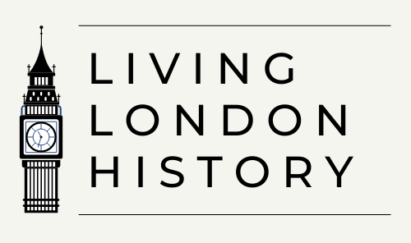Picture the scene. I am going out for an evening drink after work with a friend. We are discussing where to meet and I suggest St James’s Park as a good spot. The reason given: “because there is a Nazi dog grave on route that I would like to find…”.
Just a little insight there into how the blog has slightly altered my social life.
Anyway, hidden away by number 9 Carlton House Terrace in St James’s is a very unusual little monument: the grave of Giro the dog. It is said by some to be the only memorial to a Nazi in the country.
9 Carlton House Terrace

9 Carlton House Terrace was built by renowned Regency architect John Nash from 1827-1832. It shortly afterwards became known as Prussia House- the home of the Prussian ambassador.
It was joined by number 8 in 1923 and they became one building in 1936. They served as the German embassy right up until World War Two when they were seized as enemy property.
Leopold Von Hoesch: The German Ambassador
Leopold von Hoesch (1881-1936) was the German ambassador from November 1932-1936 and lived at number 9.

Leopold was a German diplomat, who served in France before being moved to the UK in 1932. He was, at first, the ambassador to Britain for the inter-war, liberal and democratic Weimar republic. In early 1933 the Nazi party seized control of the German government.
From then until 1936 he was, by default really, the representative of Nazi Germany in the UK. The term ‘Nazi’ is a decidedly unfair label for Leopold and his dog, hence the inverted commas in the title! Here’s why…
Leopold worked to improve Anglo-German relations throughout the early 1930’s and was highly respected by British statesmen, including future prime minister Anthony Eden.
He was critical of Hitler in a number of areas, particularly Hitler’s invasion of the Rhineland in 1936. He also sent a number of messages outlining his distrust and distaste for many of the Fuhrer’s inner circle, particularly of the man who would ultimately take over his role: Joachim von Ribbentrop.

When Leopold died suddenly of a heart attack in 1936, in his bedroom at the German embassy, he was honoured with a large funeral cortege from London to Dover. His coffin was draped with a swastika emblazoned flag and Nazi salutes were given by the embassy staff. You can watch some rare, rather unsettling footage here.
In contrast, once his body was back in Berlin, no-one from the Nazi party attended his funeral.
Giro: The Ambassador’s Dog

When Leopold moved into 9 Carlton Place in 1932, he brought with him a pet terrier (or German shepherd- sources seem to vary).
Not a lot of solid information is known about Giro other than the fact he died in February 1934. The story goes that he was electrocuted when he bit through a cable in the back garden, although there do not appear to be any sources to confirm this.
He was buried the in the back garden under the tombstone we see today, although not at this location…
The Tombstone

I did not actually manage to find the tombstone the first time I went! Under a large tree next to number 9, behind some black railings, within a wooden box, behind a clear screen, you will find the small tombstone.

The tombstone reads:
“GIRO”
EIN TREUER BEGLEITER! (Translation: A faithful companion!)
LONDON IM FEBRUAR 1934.
HOESCH.
It was discovered, propped up against the tree you see it under today when excavations were taking place outside no. 9 to create an underground carpark.
The most likely scenario is that it was discovered by someone working on the excavations in the grounds of the old embassy.
A wonderful little London historical oddity!
An Inspiring Community Campaign: The East London Waterworks Park
I have written a lot since starting this blog about many of the amazing green…
Celebrating 60 Years Of The London Ambulance Service
2025 marks the 60th anniversary of one of London’s most essential services: the London Ambulance…
What Are The Odd Red Pillars By Blackfriars Bridge?
If you have ever walked over Blackfriars Bridge you may well have spotted these odd…
Exploring The Beautiful And Fascinating Islands Of Guernsey
In late April this year I went on a trip to Guernsey in partnership with…
More of London’s fascinating off-the-beaten track history below!





